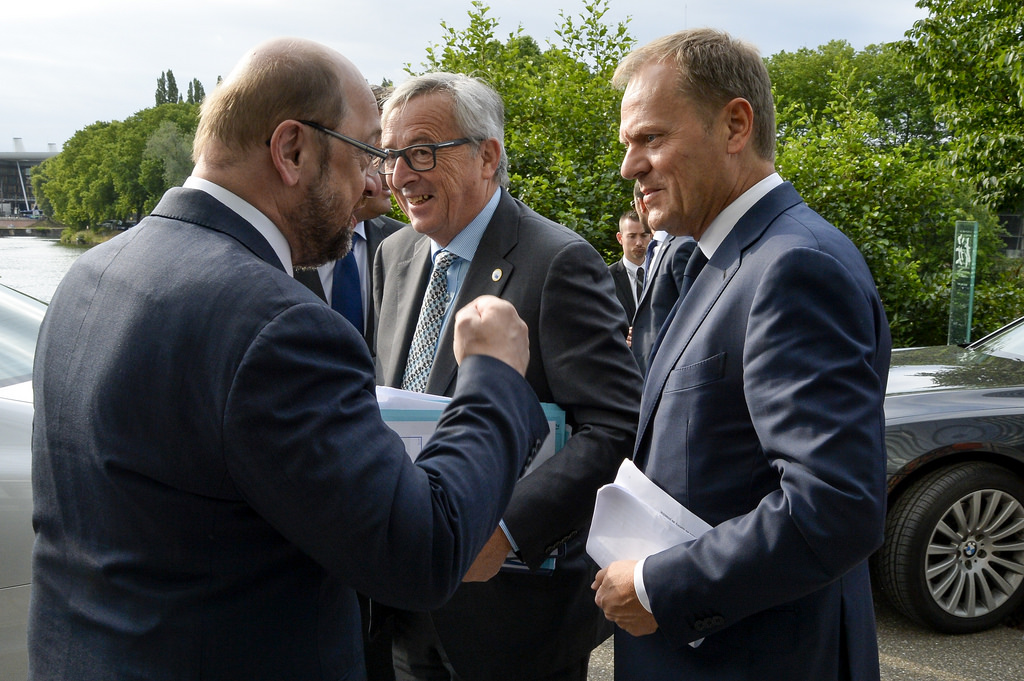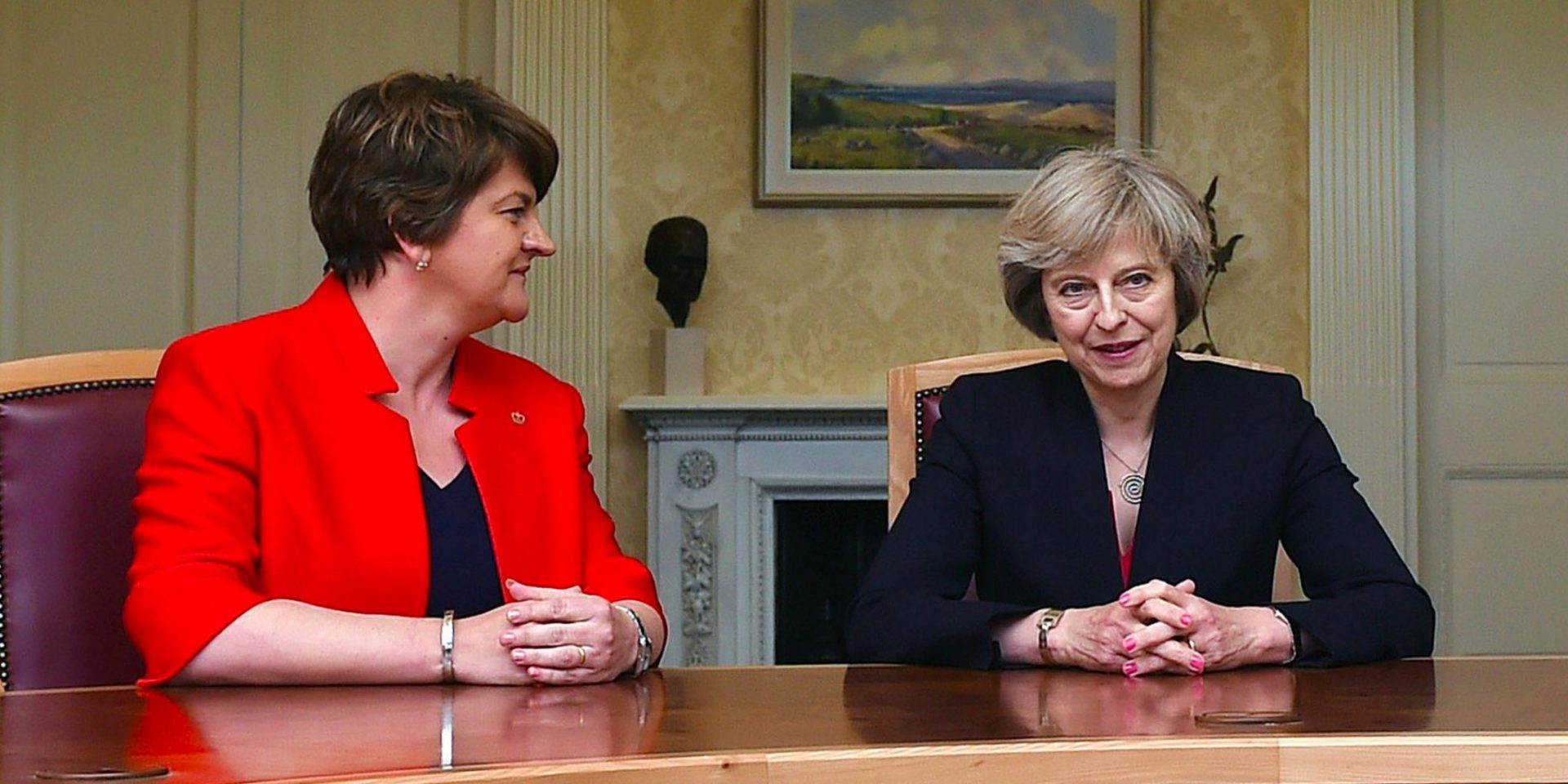
As a consequence of the dramatic events in 1989 and the fall of the Berlin wall in Europe, the introduction of the Euro and the speedy EU enlargement some years later gave an impression that the EU’s future development would continue at a very rapid pace.
Those years were also a source of optimism and inspiration for EU integrationists, who realised that EU integration could and had to move forward quickly. The assumption was that the end result would be, in a relatively short amount of time, something close to a political and economic union.
Meanwhile, however, memories of the 2nd word war started to fade away and the stated purpose of the European Union as a guarantor for peace started to have less meaning for the voters. In most cases, peace in Europe was taken for granted. On the other hand, as the European Union started to develop, it started to have an influence on the national sovereignty of EU member states.
In addition to these developments, Europe’s long term economic prospects, demographic changes and rapid globalisation created worrying concern. While globalisation provided many opportunities for European firms, it also had a profound impact on many areas of citizen life, which was perceived by many as a threat. Citizens felt that the European Union had not been able to perform in relation to the big challenges facing the economy and security in Europe.
As a result, the idea of a united Europe became less and less convincing. The ongoing crisis within the European Union was understood as a crisis of the future existence of the European Union – and the question of whether or not the European Union had a long term future emerged.
In his article on the development of the EU, Steven Hill made a point to compare the development of the United States with the development of the European Union. He emphasised the fact that severe crises, even existential, were essential to the development of the US. It took around 80 years before the idea that the US would be one country became accepted by mainstream thinking.
Before reaching that point, the US had to deal with the fact that, in the beginning, there were various currencies, various religions and various languages which citizens could not unite around. Only after various financial crises and one civil war did it become clear that the US would be accepted as a single national project by everybody. Similarly, Hill points out that we should not see European integration as a technical process, but rather as a cultural and social one, which by definition will take decades rather than years to achieve.
Can we accept the fact, just maybe, that the EU will become both psychologically and emotionally important for the people in the distant future, much like a nation state is today? And if so, what shall we do in the meantime?
Offering “More Europe” as a solution for problems may resonate well in many establishments, but obviously it has become less and less popular as an argument for the voters. In fact, if we look now at the rise of populist parties and the challenges that the EU is currently facing on many fronts, it seems unlikely that the EU will move forward very quickly in its integration process.
But the EU has been taking great steps in integration throughout the last 7-8 years. The motivation for that was not found “values” or in a principle based debate, but rather in the need to quickly create instruments to tackle urgent challenges of the economic crisis.
What we, those who are in favour of a closely-integrated Europe, need to accept is that, before we find a solution to the challenging questions of security and economy, it is rather meaningless to focus on bold visions of the future of Europe when communicating with citizens– because the popular support is just not there today. The EU has a toolbox, rich with instruments, so we need to concentrate on solutions with instruments that we currently have.
Secondly, we need to challenge our thinking of the linear development of the EU and be ready for unorthodox ideas. The idea of a united Europe is a precious one, but it should not be taken as a religion. A dogmatic approach is futile. Situations and conditions will change, so the EU needs to be able to adapt.
Comparing the idea of a united Europe to the Soviet Union is unfair and incorrect, but nevertheless, some historic lessons can be drawn. The Soviet Union did stick to its communist ideals rigidly almost to the very end and did try to adapt too little too late. As a result, the system broke down. In contrast, China came to terms with reality and took a path clearly contradicting its original communist ideology. The result: the Soviet Union collapsed but China became a global superpower. The lesson: you should be ready to challenge your basic assumptions, even if those assumptions are very dear to you.
We should not be scared if the solutions we find now do not correspond strictly to views on the EU as they were presented a half century ago. The reality that we face will force us to accept options which today may seem unconventional. As an example, the sacred token of the EU, Schengen, is today de facto only partly functioning and we need to redesign that basic element of the EU. Furthermore, if the UK would leave the EU, we would be forced to rethink the entire European construction.
The European Union is not only about technical and political decisions, but it is also about the psychology of the people – commitment, emotions and feelings. What we are asking nations and people to do is to commit to each other in a manner unseen in human history. While some of the positive sentiment is already there, it needs time to grow. We now realise that this will take decades, maybe even more than a lifetime.
So what is left of the dream of a united Europe? If we who believe in the united Europe stick to our main argument that deeper cooperation among European states is the only way to deal with the global challenges that we face, then there is a future for deeper European integration. For example, the majority of European citizens are unsure of rapid integration but a great majority agree that the dilemmas which we face, namely the refugee crisis, ongoing terrorist threats, and Russia’s challenge, need to be met with stronger cooperation from within the EU.
People are today reluctant to accept deeper integration, but are very willing to accept a model on which they have the confidence to provide a solution even if it means strengthening the EU’s level of cooperation. Therefore, the main issue is to focus on the problems. While the EU’s institutional set up is relevant, it is secondary.
We need to accept that that the development of the EU will be done to some extent by trial and error and we should not panic when setbacks happen. Let us not live in denial. It is possible that the Schengen area will be reduced temporarily, or it is even possible that Brexit will occur. But let us go beyond defeatist pessimism. Those events may seem dramatic if they happen, but if we employ a longer historical perspective, we can understand these events as invitations to recalibrate our common European institutions and political instruments.
We will not find a new narrative for the European Union as, at the moment, there is no overarching story to sell the tale of a united Europe. If one existed, it would have already been found. In order to gain the support of European citizens, it will be necessary to find solutions to the challenges, case-by-case, and communicate our success stories to the rest of the world – and that is the narrative and vision that the majority of Europeans can agree upon.
- This article first appeared on Martenscentre



